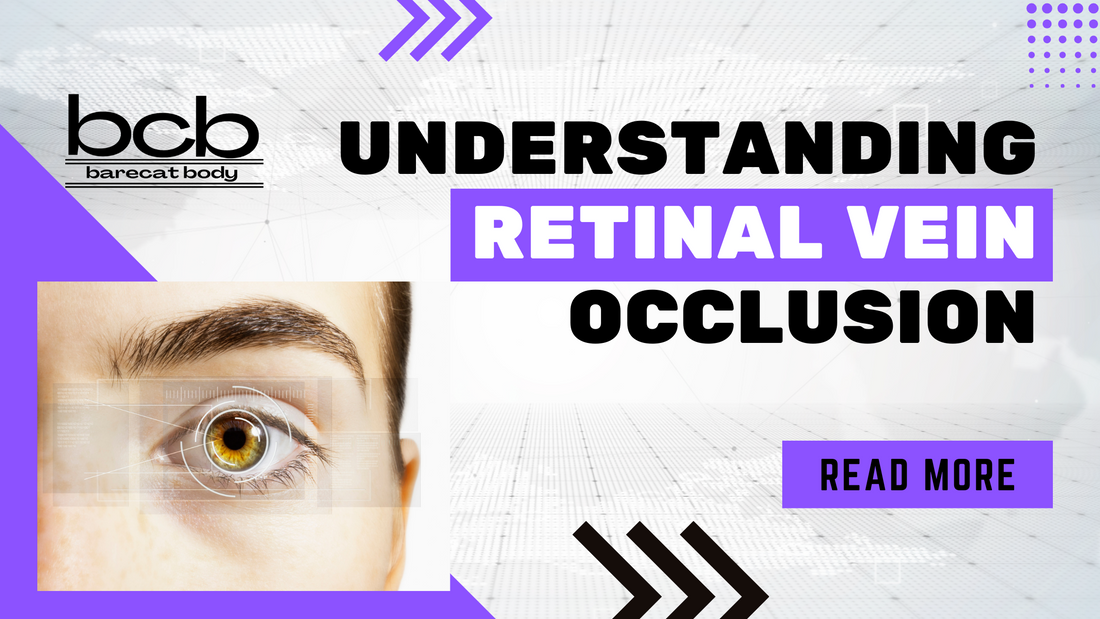
Understanding Retinal Vein Occlusion: Causes, Prevention, and Natural Remedies for CRVO
Share
Retinal vein occlusion (RVO) is a serious eye condition that occurs when a vein in the retina becomes blocked, leading to vision impairment or loss. This comprehensive guide aims to provide insight into the causes, prevention strategies, and natural remedies for central retinal vein occlusion (CRVO), a common subtype of RVO. By exploring the underlying mechanisms of CRVO and adopting proactive measures, individuals can take control of their eye health and minimize the risk of vision-related complications.
Understanding Retinal Vein Occlusion
Retinal vein occlusion occurs when a blockage forms in the veins that carry blood away from the retina, the light-sensitive tissue at the back of the eye. This blockage disrupts the normal blood flow, leading to a buildup of pressure and fluid in the retinal vessels. Central retinal vein occlusion (CRVO) specifically affects the central vein of the retina, resulting in severe vision loss or blindness if left untreated. Risk factors for CRVO include age, hypertension, diabetes, smoking, and a history of cardiovascular disease.
Causes of Retinal Vein Occlusion
The exact cause of retinal vein occlusion remains unclear, but several factors contribute to its development. One primary factor is the presence of underlying medical conditions such as hypertension, diabetes, and hyperlipidemia, which can damage the blood vessels and increase the risk of clot formation. Additionally, structural abnormalities within the retinal vessels or compression from adjacent structures may predispose individuals to RVO. Other risk factors include smoking, obesity, and a sedentary lifestyle, all of which can exacerbate vascular dysfunction and increase the likelihood of ocular complications.
Prevention Strategies for Retinal Vein Occlusion
While certain risk factors for retinal vein occlusion, such as age and genetics, are beyond one's control, several preventive measures can help reduce the risk of developing CRVO:
1. Maintain a Healthy Lifestyle: Adopting a balanced diet rich in fruits, vegetables, and omega-3 fatty acids can support cardiovascular health and reduce the risk of vascular diseases. Regular exercise and weight management are also crucial for maintaining optimal blood flow and preventing obesity-related complications.
2. Manage Underlying Health Conditions: Individuals with hypertension, diabetes, or hyperlipidemia should work closely with their healthcare provider to manage these conditions and keep them under control. Monitoring blood pressure, blood sugar levels, and cholesterol levels regularly can help prevent vascular damage and reduce the risk of RVO.
3. Avoid Tobacco Use: Smoking is a significant risk factor for vascular diseases, including retinal vein occlusion. Quitting smoking and avoiding exposure to secondhand smoke can significantly reduce the risk of ocular complications and improve overall health.
4. Practice Eye Health Hygiene: Regular eye examinations are essential for early detection and management of ocular conditions, including RVO. Individuals with pre-existing eye conditions or risk factors for RVO should undergo comprehensive eye screenings to monitor their retinal health and detect any abnormalities promptly.
Natural Remedies for Central Retinal Vein Occlusion (CRVO):
While conventional treatments for CRVO focus on managing symptoms and preventing complications, several natural remedies and lifestyle modifications may complement medical interventions and support overall eye health:
1. Dietary Supplements: Certain nutrients and antioxidants, such as vitamins C and E, lutein, zeaxanthin, and omega-3 fatty acids, have been shown to promote retinal health and reduce the risk of vascular diseases. Incorporating foods rich in these nutrients, such as leafy greens, citrus fruits, nuts, seeds, and fatty fish, into your diet or taking dietary supplements may help support ocular function and reduce inflammation.
2. Herbal Therapies: Some herbs and botanicals, including bilberry, ginkgo biloba, and grape seed extract, have been traditionally used to improve circulation, reduce inflammation, and protect against oxidative damage. While more research is needed to establish their efficacy for CRVO specifically, these natural remedies may offer potential benefits for overall eye health when used under the guidance of a healthcare professional.
3. Lifestyle Modifications: Adopting healthy lifestyle habits, such as maintaining a balanced diet, engaging in regular physical activity, managing stress, and getting adequate sleep, can contribute to overall well-being and support ocular health. Avoiding excessive alcohol consumption and limiting caffeine intake may also help maintain optimal blood flow and vascular function.
4. Eye Exercises: Performing eye exercises and practicing relaxation techniques, such as palming, eye rotations, and focusing exercises, may help improve blood circulation to the eyes, reduce eye strain, and alleviate symptoms associated with CRVO. Consult with an eye care professional or vision therapist for personalized recommendations and guidance on appropriate exercises for your specific needs.
In the end, retinal vein occlusion (RVO), particularly central retinal vein occlusion (CRVO), poses significant challenges to vision and ocular health. While certain risk factors for CRVO are beyond individual control, adopting preventive measures and incorporating natural remedies into one's lifestyle can help reduce the risk of developing this sight-threatening condition. By maintaining a healthy lifestyle, managing underlying health conditions, and practicing eye health hygiene, individuals can take proactive steps to safeguard their vision and preserve ocular function. Additionally, exploring natural remedies and complementary therapies under the guidance of a healthcare professional may offer potential benefits for supporting retinal health and reducing the risk of complications associated with CRVO. With a proactive approach to eye care and a commitment to overall well-being, individuals can empower themselves to protect their vision and enjoy a lifetime of healthy eyesight. Nurture yourself, Naturally
Understanding Retinal Vein Occlusion
Retinal vein occlusion occurs when a blockage forms in the veins that carry blood away from the retina, the light-sensitive tissue at the back of the eye. This blockage disrupts the normal blood flow, leading to a buildup of pressure and fluid in the retinal vessels. Central retinal vein occlusion (CRVO) specifically affects the central vein of the retina, resulting in severe vision loss or blindness if left untreated. Risk factors for CRVO include age, hypertension, diabetes, smoking, and a history of cardiovascular disease.
Causes of Retinal Vein Occlusion
The exact cause of retinal vein occlusion remains unclear, but several factors contribute to its development. One primary factor is the presence of underlying medical conditions such as hypertension, diabetes, and hyperlipidemia, which can damage the blood vessels and increase the risk of clot formation. Additionally, structural abnormalities within the retinal vessels or compression from adjacent structures may predispose individuals to RVO. Other risk factors include smoking, obesity, and a sedentary lifestyle, all of which can exacerbate vascular dysfunction and increase the likelihood of ocular complications.
Prevention Strategies for Retinal Vein Occlusion
While certain risk factors for retinal vein occlusion, such as age and genetics, are beyond one's control, several preventive measures can help reduce the risk of developing CRVO:
1. Maintain a Healthy Lifestyle: Adopting a balanced diet rich in fruits, vegetables, and omega-3 fatty acids can support cardiovascular health and reduce the risk of vascular diseases. Regular exercise and weight management are also crucial for maintaining optimal blood flow and preventing obesity-related complications.
2. Manage Underlying Health Conditions: Individuals with hypertension, diabetes, or hyperlipidemia should work closely with their healthcare provider to manage these conditions and keep them under control. Monitoring blood pressure, blood sugar levels, and cholesterol levels regularly can help prevent vascular damage and reduce the risk of RVO.
3. Avoid Tobacco Use: Smoking is a significant risk factor for vascular diseases, including retinal vein occlusion. Quitting smoking and avoiding exposure to secondhand smoke can significantly reduce the risk of ocular complications and improve overall health.
4. Practice Eye Health Hygiene: Regular eye examinations are essential for early detection and management of ocular conditions, including RVO. Individuals with pre-existing eye conditions or risk factors for RVO should undergo comprehensive eye screenings to monitor their retinal health and detect any abnormalities promptly.
Natural Remedies for Central Retinal Vein Occlusion (CRVO):
While conventional treatments for CRVO focus on managing symptoms and preventing complications, several natural remedies and lifestyle modifications may complement medical interventions and support overall eye health:
1. Dietary Supplements: Certain nutrients and antioxidants, such as vitamins C and E, lutein, zeaxanthin, and omega-3 fatty acids, have been shown to promote retinal health and reduce the risk of vascular diseases. Incorporating foods rich in these nutrients, such as leafy greens, citrus fruits, nuts, seeds, and fatty fish, into your diet or taking dietary supplements may help support ocular function and reduce inflammation.
2. Herbal Therapies: Some herbs and botanicals, including bilberry, ginkgo biloba, and grape seed extract, have been traditionally used to improve circulation, reduce inflammation, and protect against oxidative damage. While more research is needed to establish their efficacy for CRVO specifically, these natural remedies may offer potential benefits for overall eye health when used under the guidance of a healthcare professional.
3. Lifestyle Modifications: Adopting healthy lifestyle habits, such as maintaining a balanced diet, engaging in regular physical activity, managing stress, and getting adequate sleep, can contribute to overall well-being and support ocular health. Avoiding excessive alcohol consumption and limiting caffeine intake may also help maintain optimal blood flow and vascular function.
4. Eye Exercises: Performing eye exercises and practicing relaxation techniques, such as palming, eye rotations, and focusing exercises, may help improve blood circulation to the eyes, reduce eye strain, and alleviate symptoms associated with CRVO. Consult with an eye care professional or vision therapist for personalized recommendations and guidance on appropriate exercises for your specific needs.
In the end, retinal vein occlusion (RVO), particularly central retinal vein occlusion (CRVO), poses significant challenges to vision and ocular health. While certain risk factors for CRVO are beyond individual control, adopting preventive measures and incorporating natural remedies into one's lifestyle can help reduce the risk of developing this sight-threatening condition. By maintaining a healthy lifestyle, managing underlying health conditions, and practicing eye health hygiene, individuals can take proactive steps to safeguard their vision and preserve ocular function. Additionally, exploring natural remedies and complementary therapies under the guidance of a healthcare professional may offer potential benefits for supporting retinal health and reducing the risk of complications associated with CRVO. With a proactive approach to eye care and a commitment to overall well-being, individuals can empower themselves to protect their vision and enjoy a lifetime of healthy eyesight. Nurture yourself, Naturally
